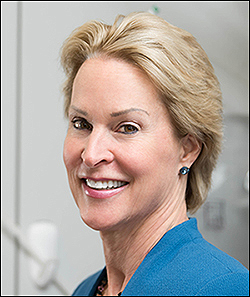Stephen Doster
Oct 30, 2020, 2:36 PM

Frances Arnold, a 2018 Nobel Laureate in Chemistry and chemical engineering professor at California Institute of Technology, shared her groundbreaking research in ‘directed evolution’ to a virtual crowd of over 700 attendees on Sep. 15 at the Vanderbilt School of Engineering’s fall John R. and Donna S. Hall Engineering Lecture. Arnold is the first woman to be elected to all three National Academies and the fifth to receive the Nobel Prize in her field.
Directed evolution can be used to create renewable fuel, replace harmful pesticides and design new cancer therapeutics. By introducing mutations in the enzyme, she created new enzymes with entirely different properties. “Directed evolution is a molecular optimization processon a multi-dimensional fitness landscape, where fitness is performance, and performance is defined by me.” said Arnold. “Directed enzyme evolution is making use of smooth paths in the fitness landscape.”
From dishwashing liquid to laundry detergent, manycommon household substances are a result of directed enzyme evolution, but Arnold’s purpose is a little more wide-scale than optimizing a container of Tide. By selecting for the mutations that yield positive outcomes, Arnold’s lab creates new enzymes thatare free from the constraints of natural life that can impact societal and human health in new ways. Selecting for these functionally new enzymes illuminates possible paths to a more sustainable world.
“I’m interested in how we can use evolution to help us with sustainability and do clean chemistry like nature has done for a long time” Arnold said . “We learned that evolution can optimize enzyme function in real time.”
With 126 papers, 54,000 total citations, 60 patents, 3 spinoff companies and a guest appearance on the Big Bang Theory, Arnold has dedicated her life to engineering a better world for us all. Arnold earned her B.S. in mechanical and aerospace engineering from Princeton University and her Ph.D. in chemical engineering from the University of California, Berkeley. Arnold is the Linus Pauling Professor of Chemical Engineering, Biochemistry, and Bioengineering and the Director of the Donna and Benjamin M. Rosen Bioengineering Center Division of Chemistry and Chemical Engineering at Caltech.
“By turning the crank of evolution, we can create reactions that no human being can do,” said Arnold. “Humans can’t do everything, but proteins might be able to.”